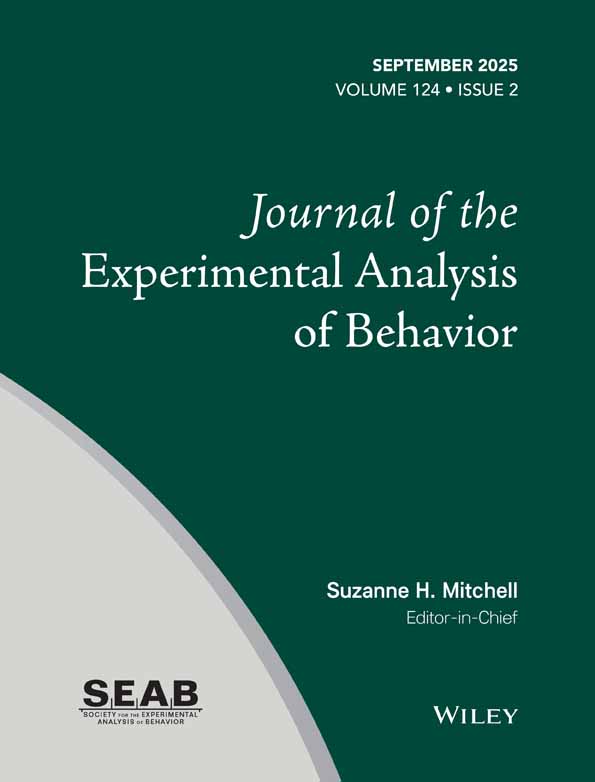INSTRUCTIONAL EFFECTS ON PERFORMANCE IN A MATCHING-TO-SAMPLE STUDY
Abstract
Conducting studies using an undergraduate participant pool is fraught with difficulties. Among them are problems with adequately motivating subjects both to come to the study, and once there, to actively engage the experimental task. Thirty-one college students participated in a matching-to-sample (MTS) study involving substantial training, testing, retraining, and retesting of conditional discriminations and equivalence relations among four 4-member classes of nonsensical words. The study was conducted during the end of the semester, when performance often had been observed to be poorer than at other points in the semester. Eleven of the participants, in addition to standard instructions about the task, received additional instructions specifying molar consequences for high rates of “correct” responses throughout the procedure. This subset of participants displayed markedly improved performance as compared to those who did not receive the additional instructions. Results suggest that specification of molar contingencies improves participants' sensitivity to molecular contingencies within the study. Instructions that specify and increase the consequential functions of feedback provided during MTS trials may be one means of reducing unwanted variability in human MTS performance.




